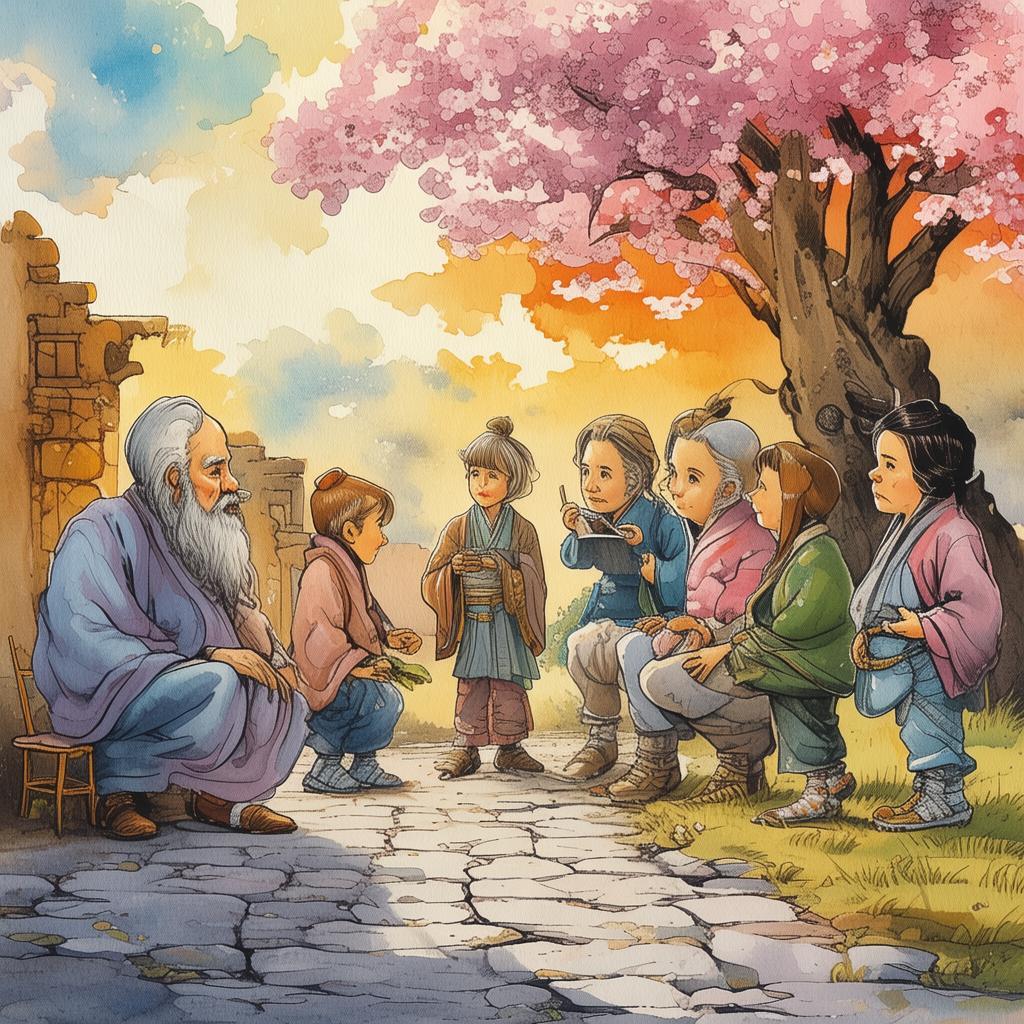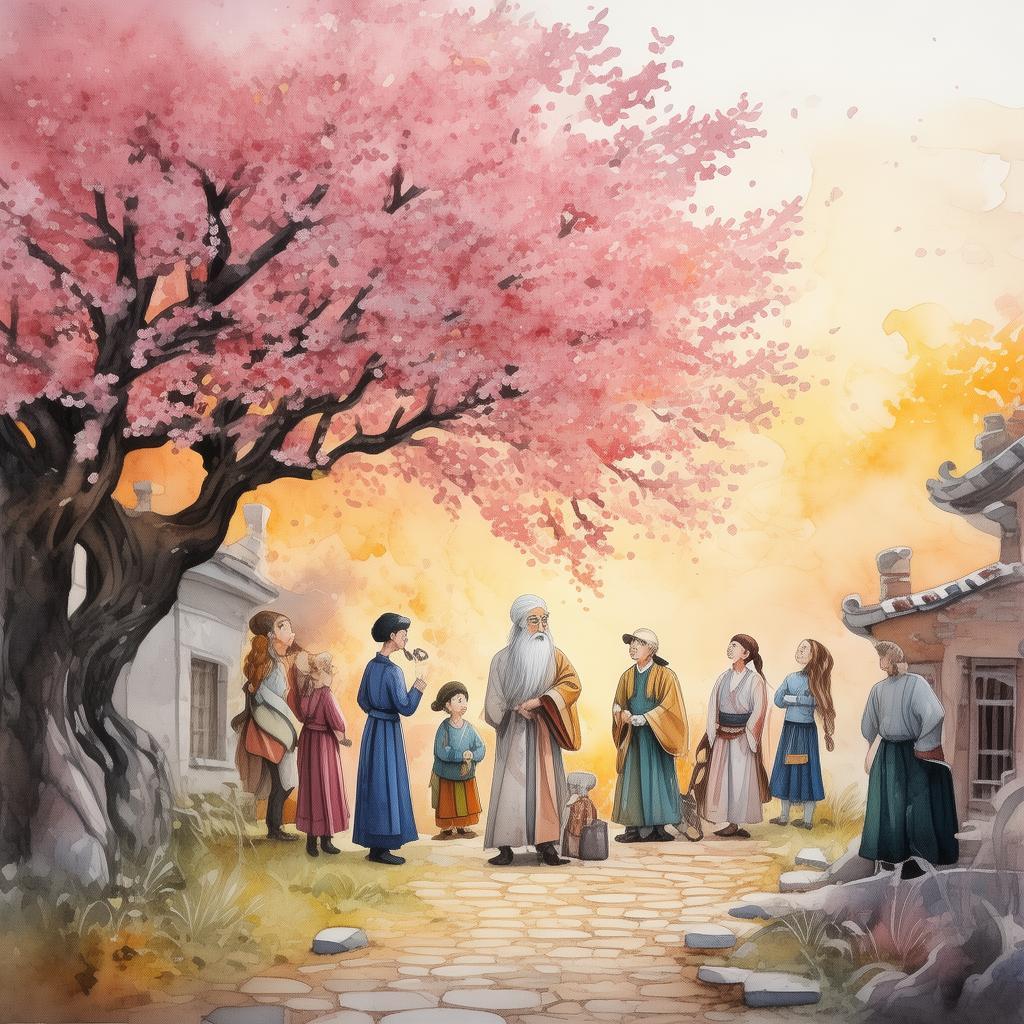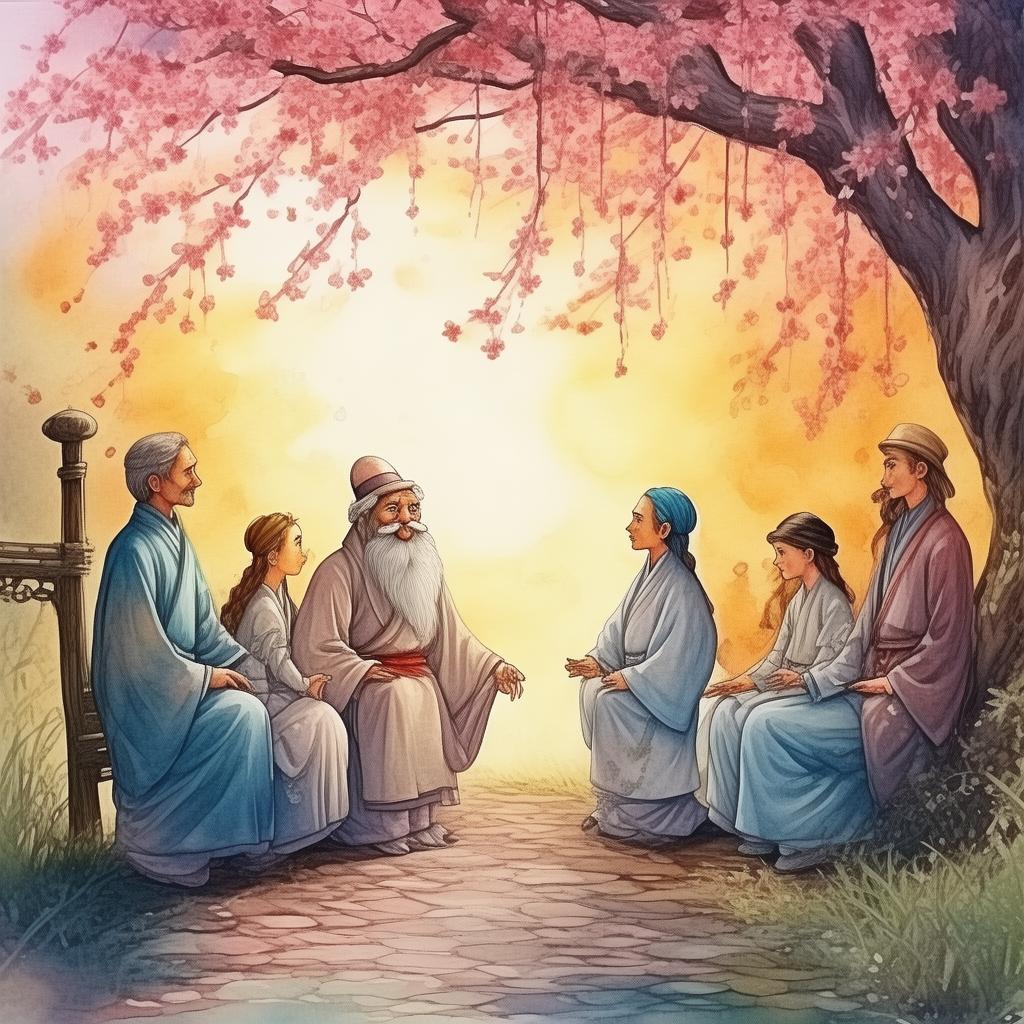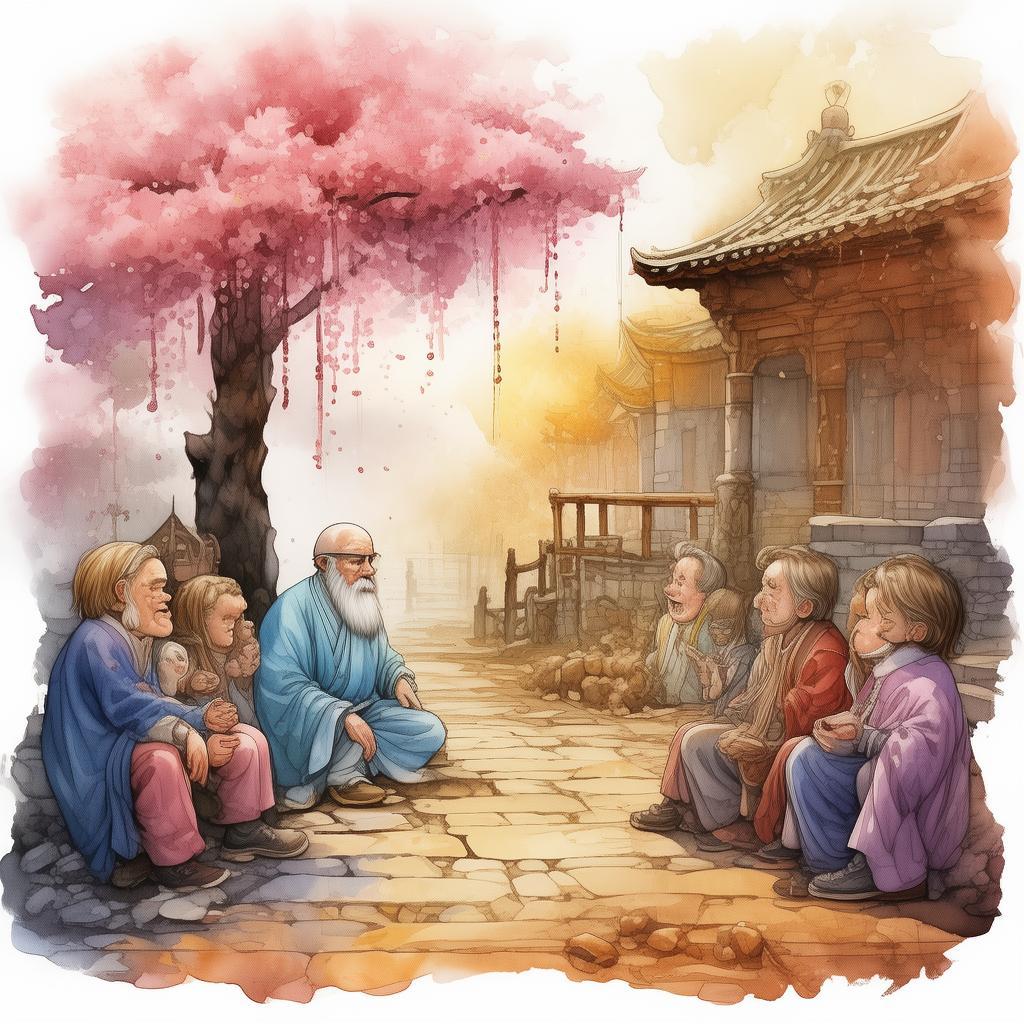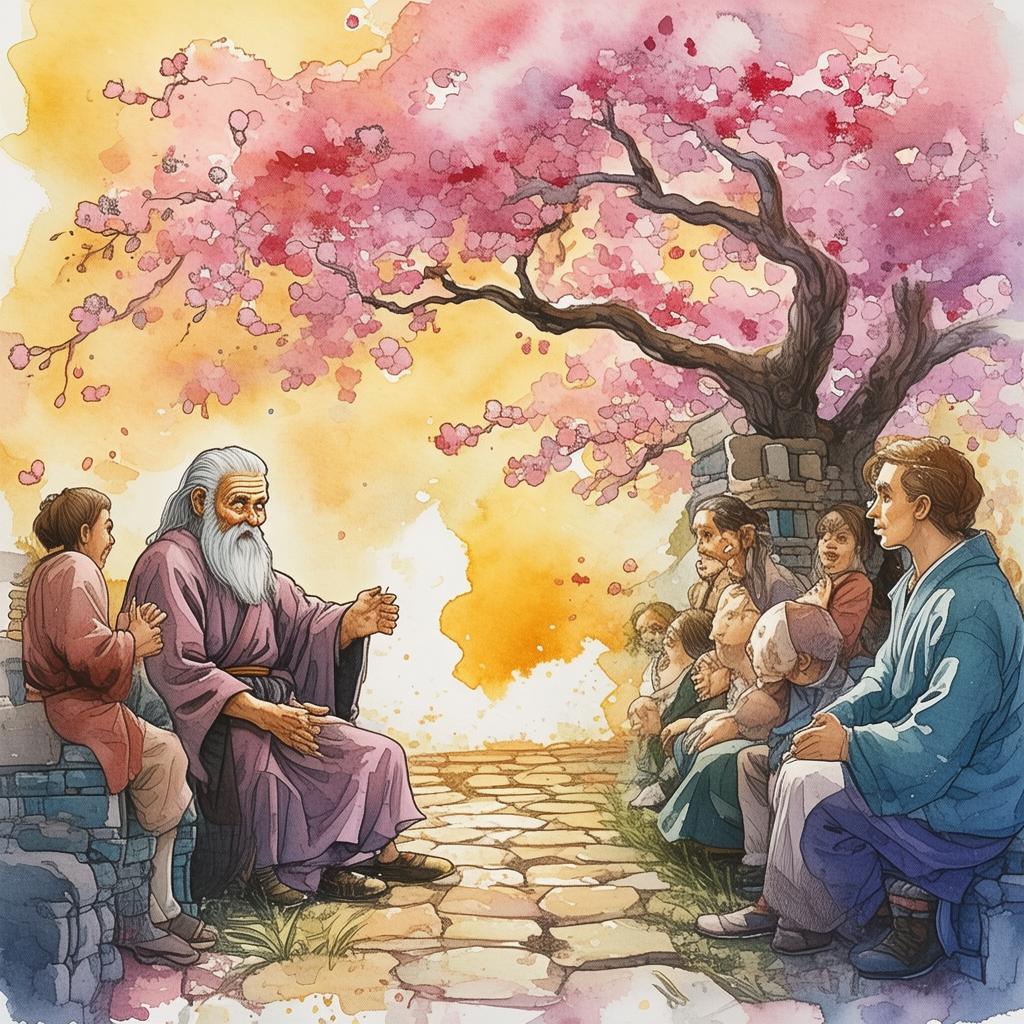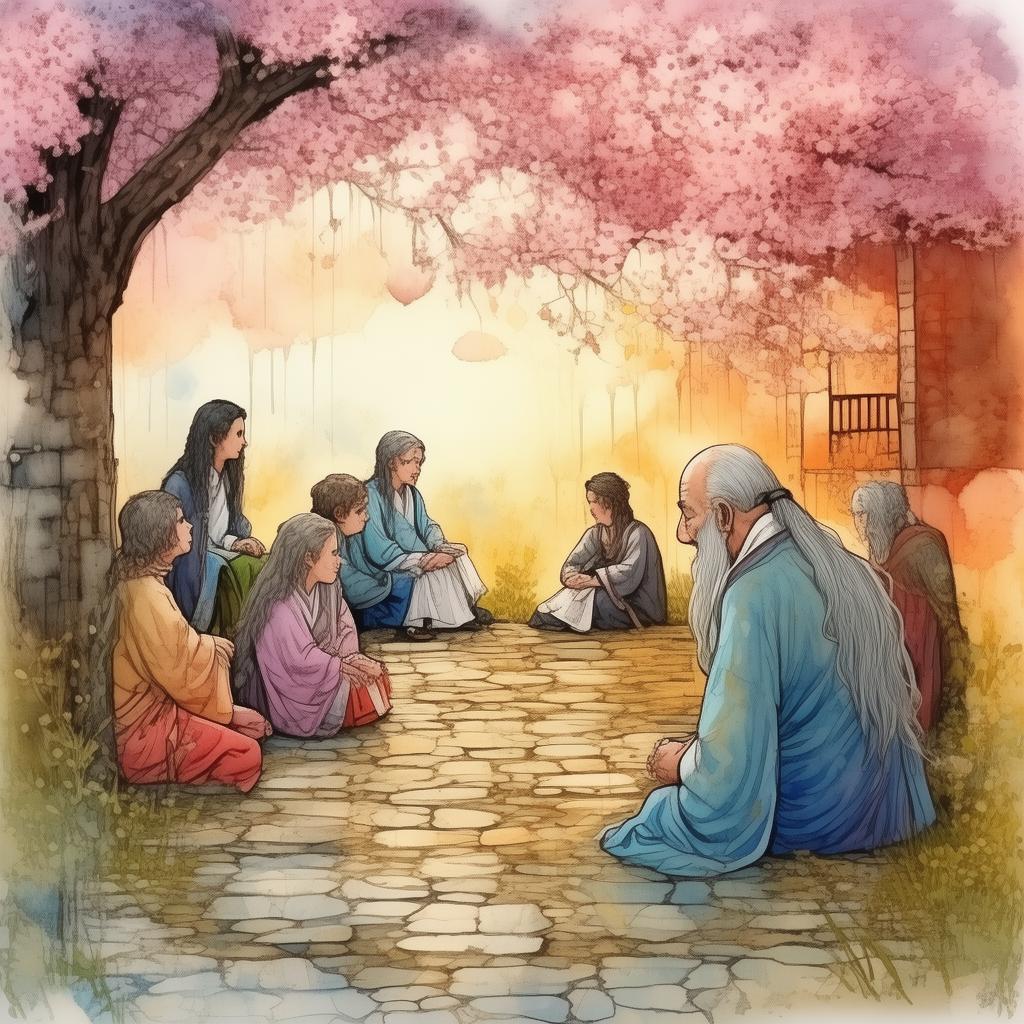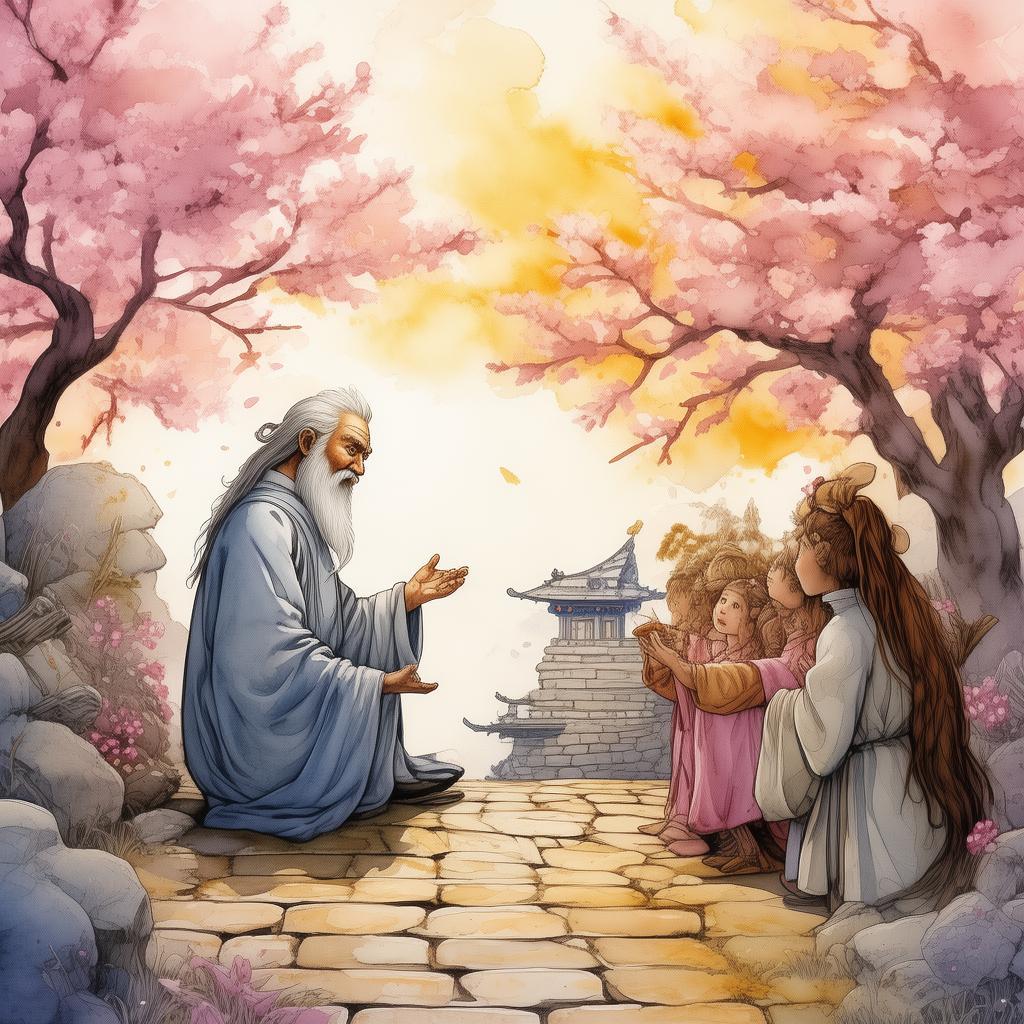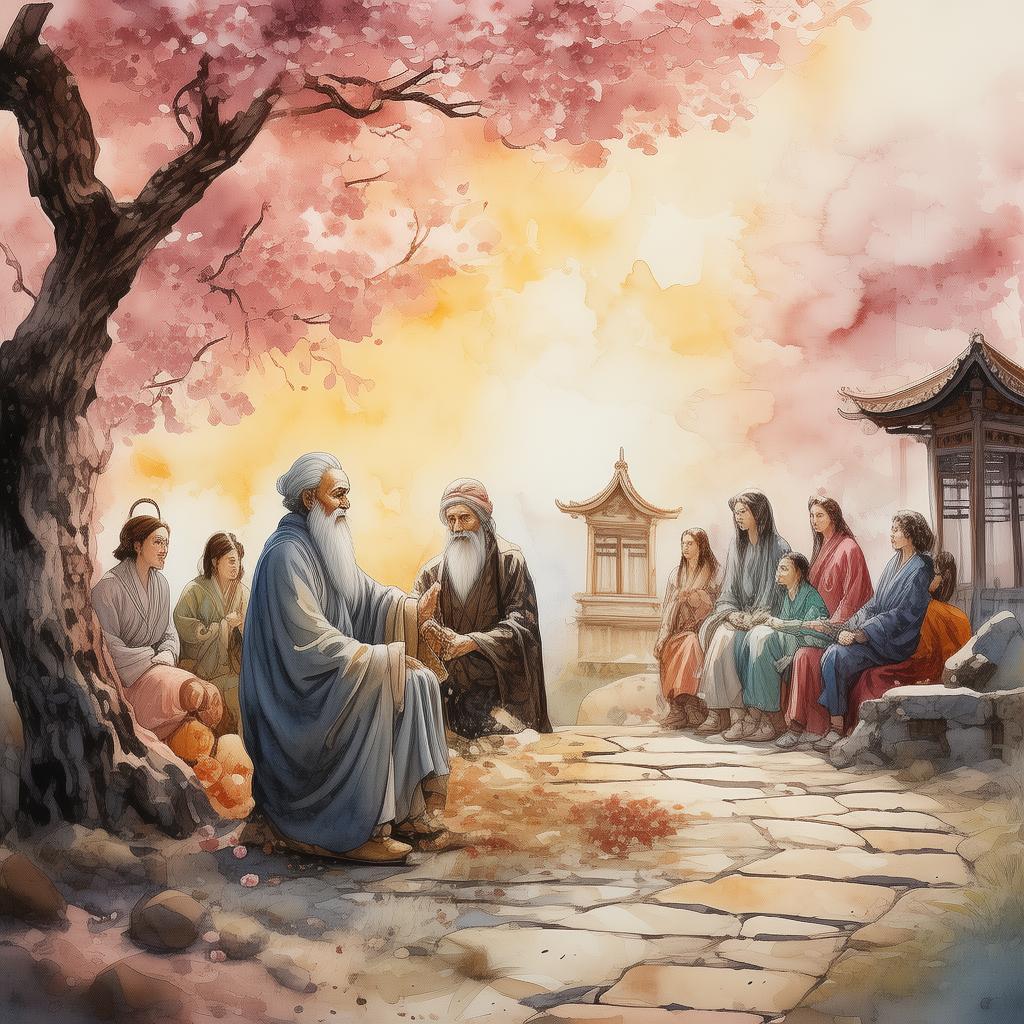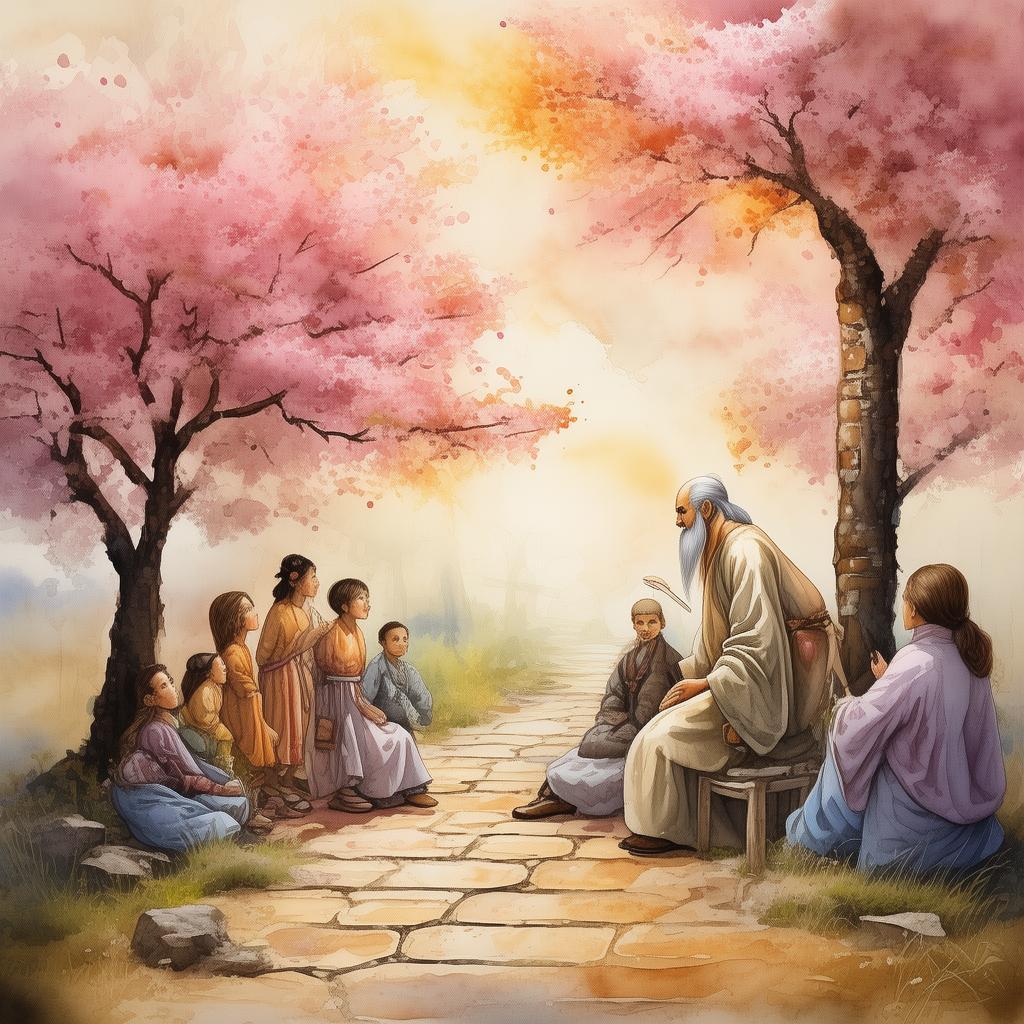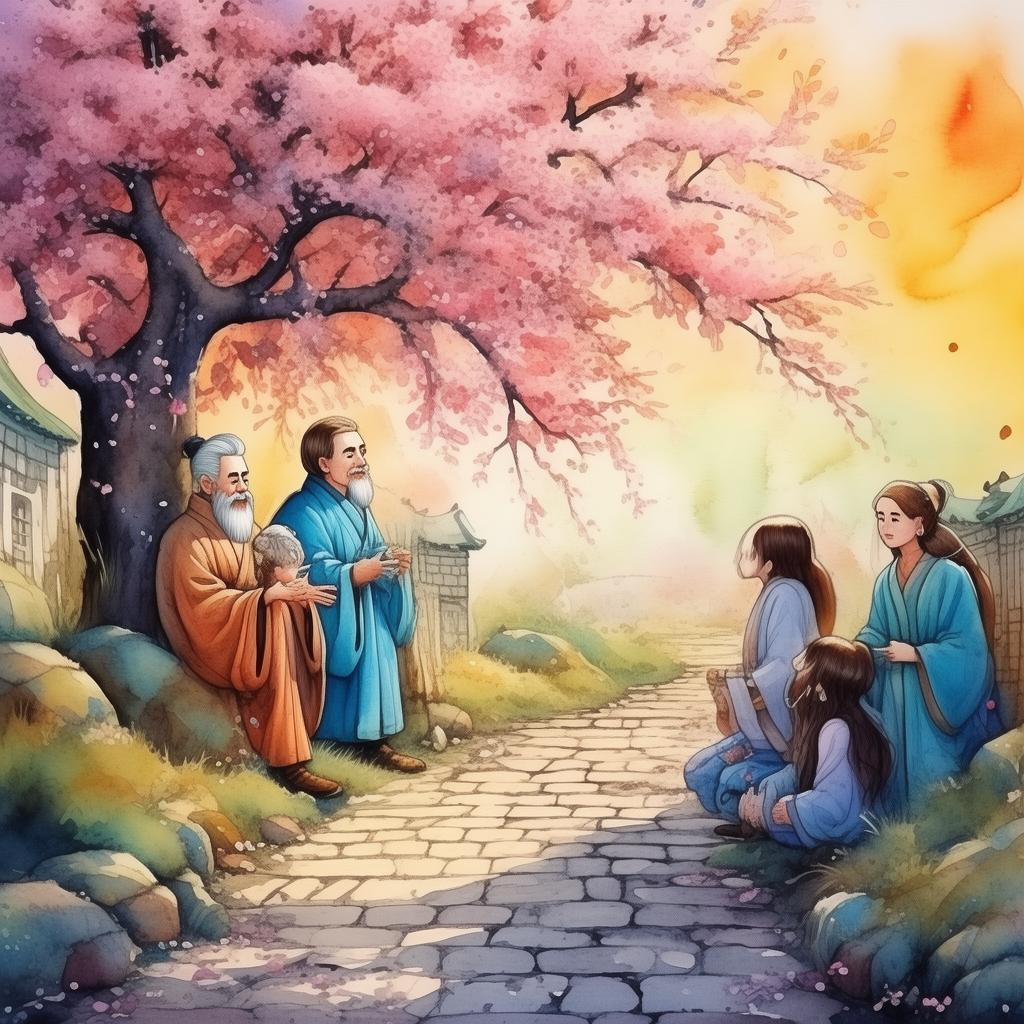The Melody of Rebirth: A Symphony of Senses
In a quaint village nestled between rolling hills and whispering forests, there lived a young man named Liang. Though his eyes were often veiled by the gauze of his blindness, his ears were an orchestra of dreams, and his heart a chamber for the most profound melodies. Liang was a master of the guqin, a traditional Chinese zither, whose music was as intricate as the ancient scrolls that guided his fingers. His talent was legendary, but it was his blindness that defined the depth of his soul's journey.
Liang's world was a symphony of sounds, from the rustling leaves to the distant rooster's crow. He could navigate through the village with ease, guided by the rhythm of his daily life. His greatest joy, however, was in composing and performing music, his fingers dancing over the strings in a language only the senses could comprehend.
One rainy afternoon, as the world outside was drenched in gray, Liang found an old, dusty scroll in the attic of his family's ancestral home. The scroll was inscribed with symbols and notes that seemed to hum with a life of their own. Curiosity piqued, he brought the scroll to his master, the village elder, who was also a revered guqin master.
"The music on this scroll is unlike any I have ever heard," the elder whispered, his eyes wide with wonder. "It speaks of rebirth, of a symphony that transcends the senses."
With the elder's guidance, Liang began to practice the music from the scroll, his fingers tracing the intricate patterns. As days turned into weeks, the music grew more complex, weaving through his senses with an intensity that felt like a storm about to break.
One night, as the moon hung like a silver coin in the sky, Liang sat before his guqin. The air was thick with the scent of damp earth and the distant call of an owl. With a deep breath, he began to play. The notes flowed from the scroll, through his fingers, and into the night, creating a melody that seemed to reach beyond the veil of his blindness.
As the music reached its crescendo, Liang felt a surge of energy course through him. It was as if the music had opened a window into another world, a realm where sight and sound were one, and the senses were no longer barriers but bridges to understanding.
The melody resonated with the villagers, drawing them from their homes to gather around Liang. As he played, they felt the music in their bones, in their hearts, in every fiber of their being. It was as if the music was a mirror reflecting their own souls, revealing hidden emotions and experiences they had long buried.
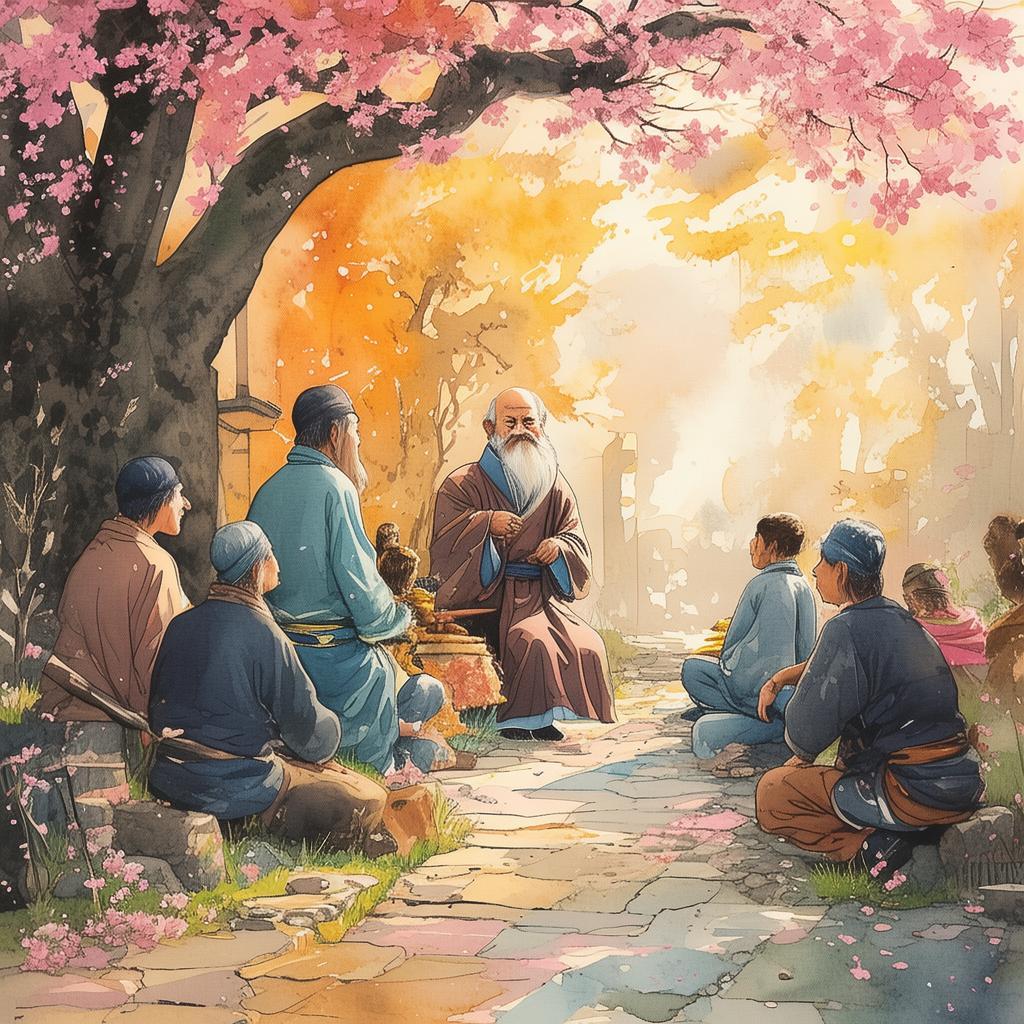
Word of Liang's music spread like wildfire, reaching the ears of a renowned composer who was passing through the village. The composer, intrigued by the legend, decided to visit Liang's humble abode. As he listened, his eyes filled with tears. "This is not just music," he said. "It is a symphony of rebirth, a testament to the power of the human spirit."
The composer offered Liang the chance to perform in the capital city, a place where Liang had always dreamed of performing but had never dared to imagine. With the scroll and the melody of rebirth in his heart, Liang accepted the invitation.
In the capital, Liang's performance was a spectacle that captivated the crowds. The music transcended the bounds of language and culture, touching the hearts of everyone who heard it. Liang played until the last note resonated in the grand hall, leaving the audience in awe of the power of music and the senses.
The melody of rebirth had not only transformed Liang's life but also the lives of all who heard it. Through the symphony of his senses, Liang had become a bridge between the seen and the unseen, a vessel of the soul's profound journey.
In the end, Liang returned to his village, not as a blind musician but as a man reborn, his music a testament to the boundless power of the senses and the universal language of music. The melody of rebirth had become a legend, a story that would be told for generations, a reminder that even in the darkest of times, there is always a path to light.
✨ Original Statement ✨
All articles published on this website (including but not limited to text, images, videos, and other content) are original or authorized for reposting and are protected by relevant laws. Without the explicit written permission of this website, no individual or organization may copy, modify, repost, or use the content for commercial purposes.
If you need to quote or cooperate, please contact this site for authorization. We reserve the right to pursue legal responsibility for any unauthorized use.
Hereby declared.
